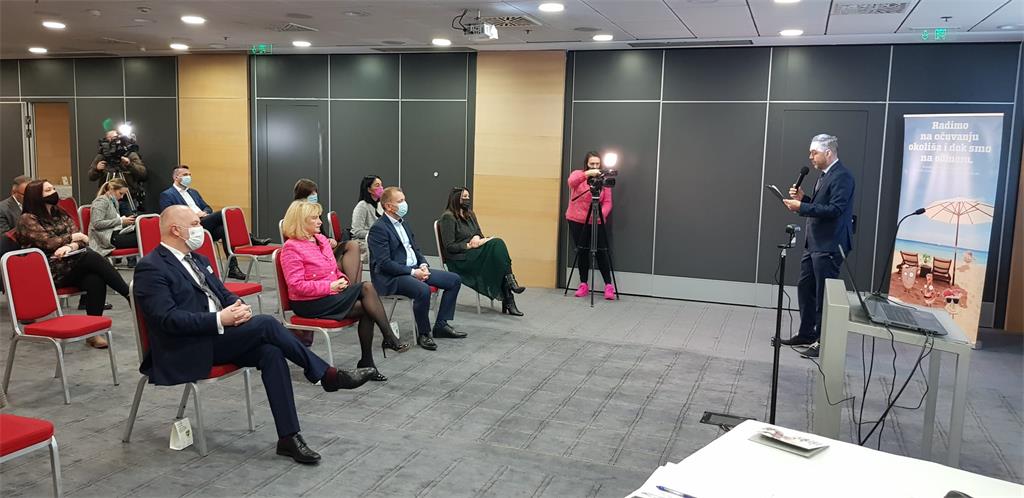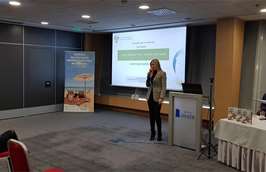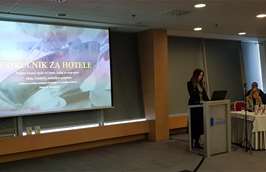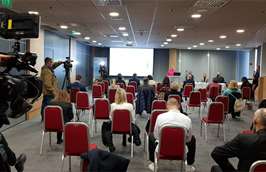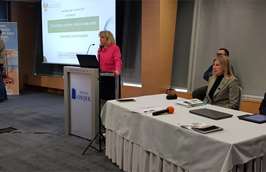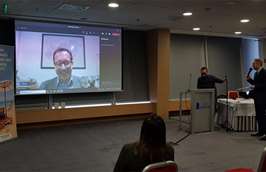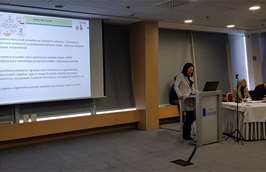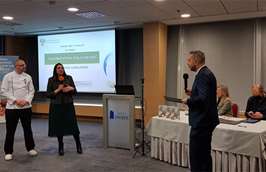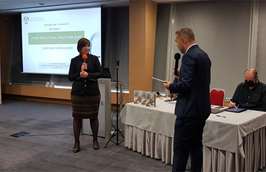16.12.2021.
The results of the Fund’s pilot project “Reduce food waste, cook for your guests” were presented at the Osijek Hotel together with the guide for holes as a valuable tool for reducing food waste.To recap: the pilot project was launched in two Croatian hotels – in Osijek and Pula with the aim of introducing work methods in the hotel kitchens to reduce food waste. So far, workshops were held for the hotel staff, and the results of the surveys were presented at the Osijek Hotel in Osijek today.
“You are aware that for a long time the Environmental Protection and Energy Efficiency Fund has been implementing waste management projects, and one of them is the project Reduce food waste, cook for your guests, which we launched six months ago. As Croatia is obliged to separately collect 40% of the mass of the produced biowaste by 2022, which includes food waste, this is the focus of this project. Today we will present the results and a very important guide for the hotel staff, which contains the guidelines, recommendations and methods that can contribute to reducing food waste, and consequently significantly reduce the landfilling of biowaste, as one of our main goals,” said deputy director Alenka Košiša Čičin-Šain.
“Today we have seen the results of the survey of waste in two hotels – the Osijek Hotel and the Park Plaza Histria in Pula. The results from the Osijek Hotel show that food waste per guest/meal was reduced by around 11% compared to the June baseline, meaning there is the potential for further reduction if the recommendations are accepted. Together with the hotel staff, we started by measuring the total food waste in 10 categories, dividing them into meat, eggs, bread, milk and dairy products. The result for bread was a reduction of as much as 50% from the reference measurement. One of the reasons for these results in the Osijek Hotel were smaller plates placed alongside the bigger ones, so that the guests had the option to choose the plate size and take a portion they would actually eat. This is not intended to reduce the amount of food the guests will eat, but to prevent having leftovers that get thrown away,“ explained Vesna Cetin Krnjević, the head of the Department for the implementation of EU projects and pilot project coordinator.
The Osijek Hotel manager Sandra Đurđević expressed her pleasure with the achieved reduction of food waste by 11%. “Our task was to measure the quantities of waste we were producing, then to implement the measures we agreed on to reduce this waste.“
The president of the Osijek City Council, Vladimir Ham, endorsed the project, mentioning that today many people did not have enough food on the one hand, while on the other the modern society had huge excess making food a problem. “In the past years, Osijek has become the leader in separating waste and waste management, which also includes the separation of biowaste.“
The Croatian tourism has a key role in this, since the development of the sector increasingly relies on sustainability. The director of the Directorate for Sustainable Development and Competitiveness of Tourist Destinations of the Ministry of Tourism, Slavko Štefičar, referred to this: “Most of the food being served, especially during the season when the number of guests spikes up, results in great quantities of waste, and that is something we definitely want to reduce. So, we support the projects that promote reducing food waste, and we call upon the tourism and catering sector to implement even smaller soft measures that can achieve significant results without creating a financial burden.“
“Croatia in 2020 recorded 418 kg of municipal waste per capita/year, but this is a generalised statistic. It is interesting to look at the quantity’s ratio in the seven coastal counites that are the most prominent and visited tourist destinations, together with the City of Zagreb. In this case, in the seven coastal counites the quantity of waste per capita/year is 524 kg, with 515 kg in Zagreb. The remaining 13 counties generate only 217 kg per capita/year. This clearly shows that tourism, meaning more visitors, has a significant waste footprint, and food waste is part of this. By reducing food waste, we could achieve great results and significant reduction of municipal waste quantities,” said Aljoša Duplić from the Institute for Environment and Nature at the Ministry of Economy and Sustainable Development.
The importance of the awareness of hotel guests was underlined several time, as they, too, are stakeholders in this project and without their efforts to change their eating habits when they take a meal it would not be possible to achieve the ultimate food waste targets, i.e. reduction of biodegradable waste that is being landfilled.
Another interesting speaker at today’s event was Gyula Kasza, the Wasteless project coordinator from the National Food Chain Safety Office in Hungary, who vividly put it that food waste prevention started in one’s head, and that hotels and restaurants could contribute to waste prevention by becoming part of the social norm through a creative dialogue with the guests.
Another interesting project – Hotel/Kitchen was presented by the project manager Fabijan-Hrvatin Peronja from WWF Adria – the organisation helping preserve the nature, and the project aimed at reducing food waste at hotels in Croatia and Serbia.
Other participants in today’s promotion of the guide for hotels and the results of the project included the representatives from the Ministry of Economy and Sustainable Development, other representatives from the Osijek Hotel, the representatives of other hotels in Osijek, the Fund and local and regional self-government.
